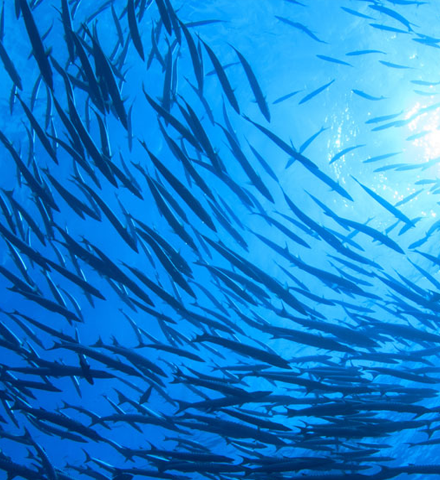Narcissist Alcoholic: The Dangerous Intersection of Two Disorders
There doesn’t appear to be a significant relationship between narcissistic personality disorder and substance use relapses. But, when people with both AUD and NPD go back to drinking, they will probably hide or deny it. They may also feel like they failed and blame someone else for their failure. This is why simultaneous treatment of both disorders is essential. An alcoholic narcissist, or someone with narcissistic personality disorder, is one of many conditions that can co-occur with alcoholism, or alcohol use disorder (AUD).
Consistent and firm communication about unacceptable behaviors is necessary. Family members must ensure the alcoholic narcissist comprehends the repercussions of crossing these boundaries. Avoiding enabling behaviors, such as covering for the person or providing them with alcohol, is necessary to prevent perpetuating the cycle of dependency and narcissistic tendencies. An alcoholic narcissist’s inherent sense of grandiosity often leads to a blatant denial of their problematic behaviors. This refusal to acknowledge any flaws helps them maintain their inflated self-image.
People may be unable to prevent certain factors, such as genetic reasons, that increase the risk of AUD and NPD. However, there are steps they can take to reduce risks within their control. The outlook of co-occurring NPD and AUD may depend on the severity of each condition and how each individual is functioning. Those with unstable self-esteem may turn to addictive behaviors for validation and to cope with negative emotions.
Crazy Narcissist: Recognizing and Dealing with Extreme Narcissistic Behavior
Their narcissistic behavior is often dangerous and abusive. Narcissists reveal destructive behavior because of a lack of empathy and genuine emotions. Narcissism and alcoholism are two distinct conditions but share some traits. Family therapy is particularly beneficial, aiding relatives in managing stress and rebuilding strained relationships through structured support and communication strategies. The journey is challenging, but with persistent effort, it can lead to meaningful progress. They are extremely self-interested and often don’t think of other people’s feelings and emotions.
Their behavior is destructive.
In order to have a diagnosis of NPD, they’ll have to consistently show the relevant symptoms over a period of many years. Just as narcissism doesn’t necessarily cause alcohol use disorder, alcoholism doesn’t necessarily cause NPD. The study commented that people who show grandiose traits may have feelings of importance in an environment of drinking where this quality may thrive. Narcissists with low self-esteem may gain acceptance from others or a sense of security through alcohol consumption or use it as a coping mechanism for dealing with distress.
If you know someone who regularly uses alcohol, it’s possible that narcissism might be one of the influencing factors. Research supports the link between some narcissistic traits and alcohol use. Alternatively, outpatient rehab suits individuals who need to maintain daily responsibilities while receiving treatment. It allows patients to attend therapy sessions and receive medical care without residing in a facility. This option offers flexibility and the opportunity to apply new coping strategies in real-world settings.
Depression vs Narcissism: Decoding the Intricate Link and Distinct Traits
Narcissism is a complex personality trait characterized by an inflated sense of self-importance and a deep need for attention and admiration. It exists on a spectrum, ranging from healthy self-esteem to pathological narcissistic personality disorder. This article discusses the similarities and differences between people with narcissistic personality disorder and those with alcohol use disorder. It also discusses ways that they are diagnosed and treated. Alcohol addiction affects behavior and the way other people are treated. This is why it’s hard for narcissists and alcoholics to maintain relationships.
Although alcohol misuse and AUD can cause someone to display narcissist-like behavior, this behavior might change when they’re sober or in recovery. The behavior might also only covert narcissist alcoholic appear when their misuse began. Treatment can help someone with NPD and AUD to change their behavior and reduce the level of dysfunction that these two conditions have in their daily life. When a person has two conditions, the best option is often to treat the two conditions simultaneously.
Other research found that 40.6% of people with NPD engage in substance abuse. Narcissism is generally linked to arrogance, self-importance, and lack of empathy. Many people colloquially throw around the term “narcissism” or call someone a “narcissist,” but NPD is a mental health diagnosis requiring specific criteria. However, it’s certainly possible for someone to exhibit narcissistic tendencies but not meet the NPD diagnostic criteria, says Sarah Lyter, LCPC, MA, a Charlie Health Clinical Supervisor. When alcoholism and narcissistic traits intermingle, they can devastate relationships, creating an environment steeped in toxicity and abuse.
Rehabilitation Strategies: Recovery Phases & Managing Relapse Risks
Nothing, not even their family’s pain, can stand in the way of the drink they feel they deserve. Research and clinical observations show that narcissists are susceptible to developing a drinking problem. An alcoholic narcissist may drink heavily for multiple reasons. In some cases, they want to show off by drinking as much as possible. Alcohol can also help fuel their grandiose ideas, making it easier for them to see themselves as smarter and more powerful than everyone else. For an alcoholic narcissist, drinking becomes a layer of defense, serving as a buffer against criticism and blocking awareness of deficiencies and failure.
NPD diagnosis
A covert narcissist is a passive-aggressive with narcissism, these are narcissists. The same with borderline, but in this sense, covert narcissism and borderline share this low level of organization of personality. And when he drinks, especially when he’s a covert narcissist, he feels godlike. They’re happy with who they are because they think they’re the next stage in the evolutionary ladder. They think they are much better adapted to life and to reality than normal people.
Narcissism and alcoholism are different conditions, but they can occur simultaneously and may share some overlapping symptoms. While both conditions can be challenging, certain approaches can help individuals overcome the potential complications of these disorders. Now, imagine being in a relationship with someone who combines the worst aspects of alcoholism and narcissism. It’s like trying to dance with a tornado – unpredictable, destructive, and likely to leave you feeling dizzy and disoriented. The effects on family dynamics and interpersonal relationships can be devastating. Narcissists and their partners often find themselves trapped in a toxic dance of codependency, with alcohol fueling the fire of dysfunction.
Alcohol & Narcissistic Personality Disorder: Is There a Connection?
Partners may feel unappreciated and undervalued, leading to resentment and conflict. You could start by exploring peer support groups like Al-Anon that help families and loved ones living with people with AUD. You can also find narcissist abuse support groups, both online or in-person, through organizations like Help Within Reach. There are numerous other online support groups and chat rooms dedicated to loved ones living with alcoholism and NPD. Patience and support are therefore needed to ensure the best possible outcomes. Without treatment, people with NPD have trouble maintaining positive relationships and are vulnerable to misusing drugs and alcohol to cope with difficult emotions.
This is why some people ask me, I consider covert narcissism by far the most dangerous type of either narcissist or psycho. And people engage in activities to which put them at risk. You do things that you’re not skilled to do, you’re not qualified to do, you’re not trained to do.
- Narcissistic personality disorder (NPD) is a mental health condition defined as persistent symptoms of narcissism that significantly impact a person’s quality of life.
- However, in some cases, alcohol addiction develops from social drinking or as a form of self-medication.
- If people have risk factors for AUD, feel they are drinking excessively, or cannot control their alcohol intake, they can speak with a healthcare professional.
- Alcohol may temporarily alleviate feelings of inadequacy or boost confidence in individuals with NPD, leading to increased consumption.
- He tries to repent and make up for what, not because he’s a good or moral person, he’s not, but because he’s terrified.
Loved ones may feel they are walking on eggshells, never knowing what to expect. Trust issues often arise as the narcissistic alcoholic may lie or manipulate to cover up their drinking habits. Understanding these dynamics is crucial in addressing the complexities of alcohol use in individuals with narcissistic traits. Not all narcissists are abusers, but some may engage in narcissistic abuse, which is typically emotional abuse.
People with NPD and people with AUD might have some symptoms in common. It’s worth noting that the DSM-5-TR doesn’t use the term “alcoholism,” but the term is still used colloquially to refer to AUD. Narcissism and alcohol use can share some signs and symptoms.
Many people use the terms “alcohol use disorder” and “alcohol misuse” interchangeably, but they refer to two different things. Research suggests that narcissism is not caused by alcohol, but rather by other factors that occur during the early developmental period. For instance, research has shown that genetic predispositions can place a person at risk of NPD.








 Login W Most Bet Kasyno Online, Bonus Bez Depozytu, Opinie 2024 - 167
Login W Most Bet Kasyno Online, Bonus Bez Depozytu, Opinie 2024 - 167